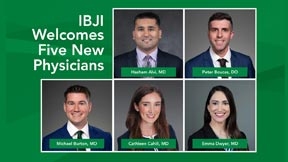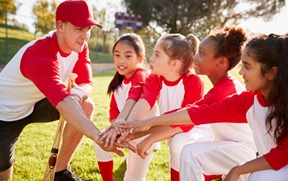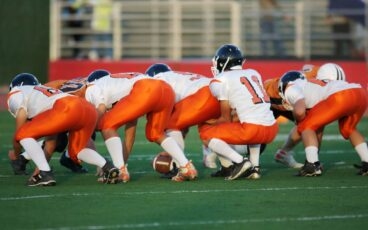Injury is a part of sports. If you play a sport, you stand a chance of becoming injured. Parents accept that if their children are athletic, they may be injured at one point or another. A recent study by SafeKids.org seems to prove that thinking is true. According to the study over three and a half millions kids, ages 14 and younger, are injured every year while taking part in a sport. About 66% of those injuries require some sort of urgent medical care. Interestingly, of all sports related injuries that occur to children, about 62% happen while practicing rather than in an actual game. The number of injuries that occur during practice, coupled with the recent deaths of five high school athletes during practices, highlights the dangers for children while playing sports. The number of injuries is very high, but there are things that parents can do to minimize the chance of injury to their growing athlete.
Go to their practices and games.No one knows a child better than his or her own parents. Parents will usually recognize the signs of injury or overexertion before other adults. Even though a child may complain, it is important for a parent to stand their ground.
- Help kids recognize their limits.Almost 45% of boys between the ages of 15 and 18 believe that they should keep playing even if they are hurt and that their coach, parent, or referee are the ones who should make them stop. Teach kids how to recognize an injury and when they should bring it to the attention of a coach of parent.
- Give them 2 days to be a kid. A growing body needs a chance to recover from the stress and strain of athletic training and competition. A young athlete should take at least two days a week off from any kind of training, practice, and competition.
- 10 weeks are needed to recover. Between high school sports, local leagues, competitive leagues, and all start teams children can now play almost any sport year round. Even though they have the ability, it is very important to let a kid have an extended chance to recover physically and psychologically. Parents should ensure that kids get at least 10 concurrent weeks of rest a year from playing a particular sport.
- Keep them hydrated.Almost 40% of parents don’t understand how much fluid a young body needs to keep up the level of activity demanded by organized sports. For every hour that the child takes part in practice, training, and competition they need to drink at least 3 glasses of water.
- Keep it fun.Sometime kids, and their parents, take athletics too seriously. Children should only take part in one sport, and on only one team, per season and that sport should be one that they want to participate in. Parents should ensure that children understand that the reason to take part in a sport should be to make friends, have fun, learn teamwork, gain skills, and learn the importance of sportsmanship. Never force a child to play a sport they don’t want to.
When Accidents Do Happen, Get Great Treatment
No matter how prepared a child is, and how watchful a parent is, injuries can happen. In the Chicago area thousands of kids are hurt every year while taking part in an organized sport. Not all injuries need urgent professional medical care, though, especially minor bumps, bruises, and cuts. Other injuries like suspected minor sprains, strains, and pulled muscles should always be evaluated as soon as possible by experienced pediatric orthopedic physicians. Injuries like broken bones, dislocated joints, and head injuries need to be immediately treated by doctors at an urgent orthopedic care facility. Thankfully, no matter what orthopedic injury a young athlete has sustained, there is only one place a parent needs to take them, the Illinois Bone and Joint Institute. The physicians and nurses at IBJI are experienced in treating sports-related injuries, no matter how young or old their patients are. Schedule online today and find out why you won’t find a better choice for orthopedic care in Illinois.
*This content is for information only and is not intended to replace the diagnosis, treatment, or medical advice from your treating healthcare professionals. The content does not provide medical advice, does not constitute the practice of medicine or other healthcare professional services, and does not create a doctor-patient relationship. You should not rely on this information as a substitute, nor does it replace professional medical advice, diagnosis, or treatment. If you have concerns or questions, seek the advice of your healthcare professionals. If you think you may have a medical emergency, call your doctor or 911 immediately. Do not rely on electronic communications or communicate through this website for immediate, urgent medical needs. This website is not designed to facilitate medical emergencies. The use of the information is at the reader’s own risk. The links are provided for information and convenience only. We cannot accept responsibility for the sites linked or the information found here. A link does not imply an endorsement of a site.





